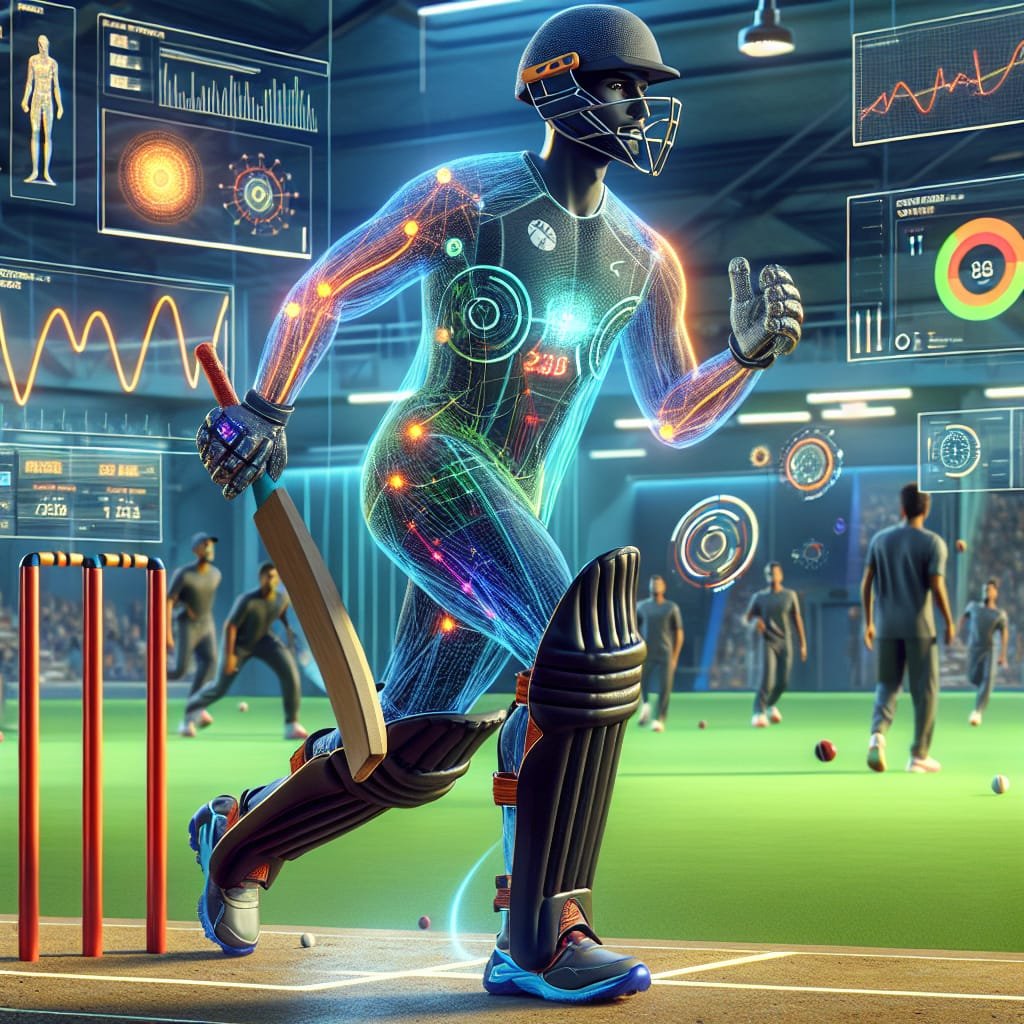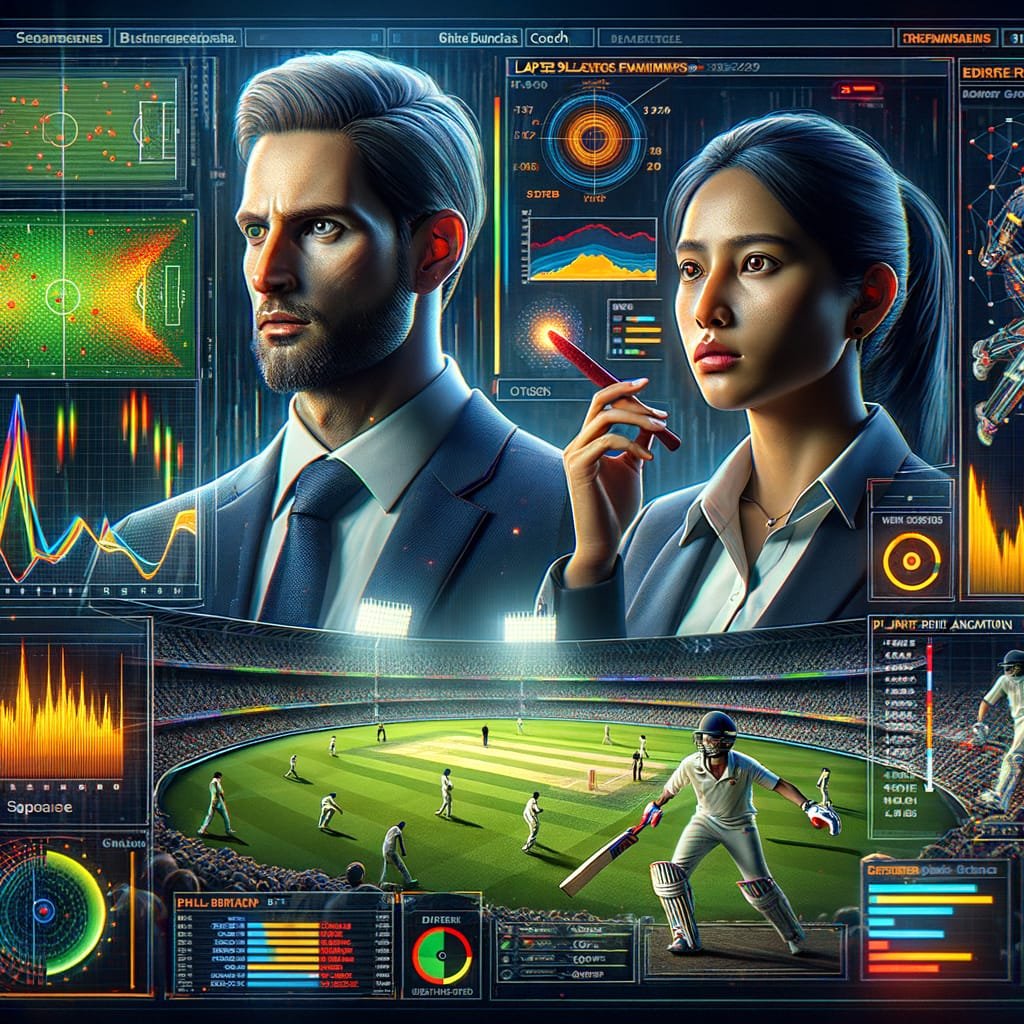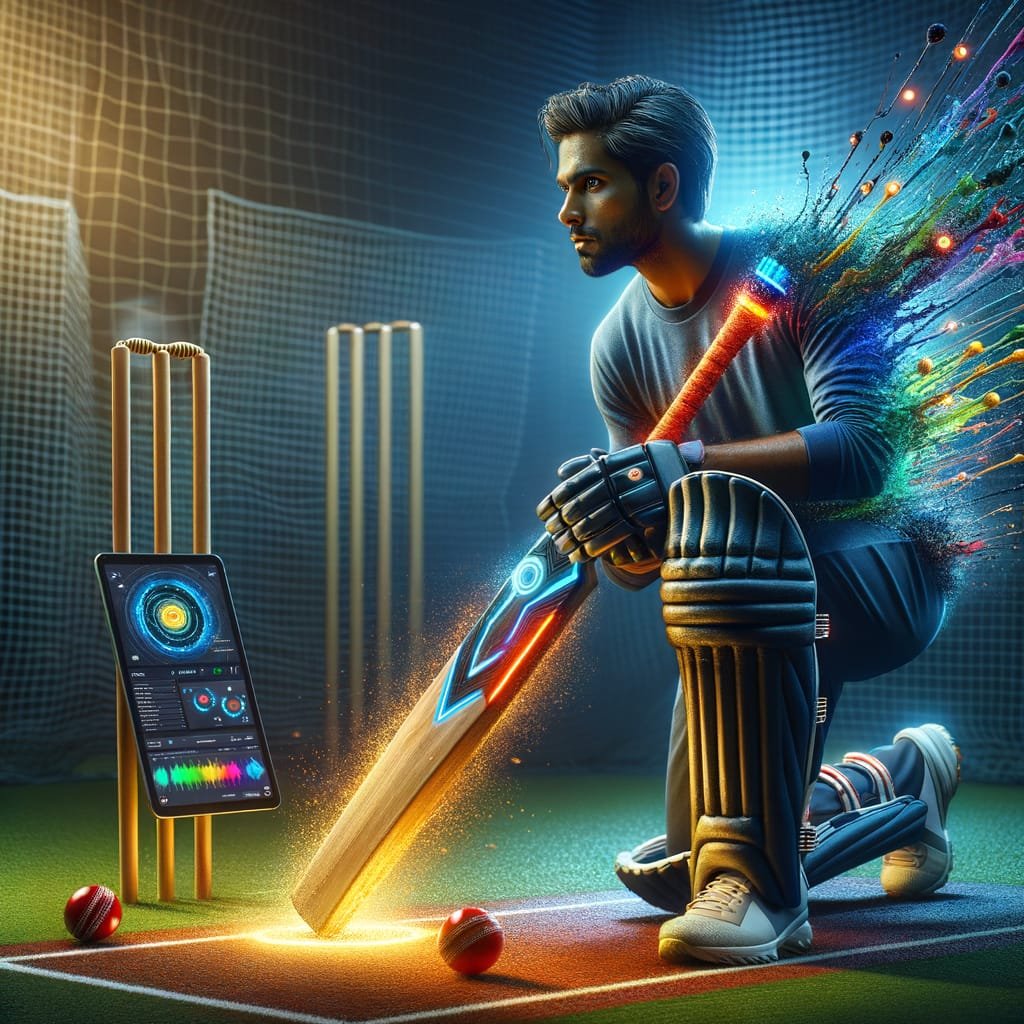Cricket has always been a sport of skill, strategy, and instantaneous decision-making. In 2025, a new player is affecting the game, and that player is Artificial Intelligence (AI). Whether it is in the form of tracking individual player performance, or creating match-winning strategies, Artificial Intelligence is infiltrating the game and is appearing to be the secret weapon of every successful team.
Let’s unpack how Artificial Intelligence and Machine Learning (ML) are influencing cricket on and off of the field, and why we are just scratching the surface.
1. AI-Driven Player Performance Analytics
A coach no longer needs to rely on instinct or manually reviewing videos. Performance analysis can be done by Artificial Intelligence algorithms that break down every ball, bat swing, and action performed on the field. Artificial Intelligence uses sensors, cameras, and other wearable tech to record data about:

• How fast the bat is moving; how steep is the bat angle
• Bowling release points
• Fatigue levels
• Coverage and agility
Using this data in real-time allows coaches to adjust players’ techniques while avoiding injury.
Example: Indian pacers, in 2025, score stress points on their knee and hips designed through AI tools and review it after every game, allowing them to adjust their workloads before injury.
2. Smarter match strategies using machine learning:
Since Artificial Intelligence doesn’t just analyze data, it learns from the data Teams are using machine learning models to determine different match scenarios using patterns from:

• Opposition behaviors
• The pitch and the weather
• Player historical performing practices
• Field placements and run rates
Those scenarios can help the captain and the analyst aid in a more accurate decision. For example, “when to bowl a spinner”, or “how to counter a certain batsman”
Example: In WPL, 2025, Artificial Intelligence predicted that spin would be the dominant attacking weapon in the middle overs of a dry Mumbai pitch and thus changing the course of the match with one bowling change.
3. Fan experiences: Personalized and immersive
Artificial Intelligence is not just new for players; fans are also experiencing the revolution. Whether you’re watching from your phone or sitting in the stadium, your cricket experience is now uniquely personalized for you:

• Smart highlights showing your favorite players
• Real-time player stats in AR while watching live
• Voice-enabled assistants informing your “What’s Virat’s strike rate in chases?”
• Artificial Intelligence enhanced fantasy cricket suggestions based deep data
You’re experiencing cricket like never before – tailored to you.
Example: Broadcasters are now offering “AI View” streams where fans can switch camera angles, see in-play predictions in real-time, and have stats pop-up instantly.
4. The Growth of Smart Cricket Gear
Even cricket equipment is becoming proficient. Companies are now embedding AI into:

• Smart bats that give feedback on the quality of a shot
• Artificial Intelligence powered balls that measure seam position/spin
• Training nets that change challenge based on the batter’s level of proficiency
These devices are allowing players to get better faster and train quicker, even when practicing alone.
5. What’s Next? The Future of Artificial Intelligence in Cricket
We are just at the beginning. Soon AI will be able to:
• Identify injury before it happens
• Train young cricketers by way of AR + Artificial Intelligence
• Drive all decisions of an umpire by Artificial Intelligence
• Immerse fans in a simulated AI-generated match experience.
Cricket is becoming smarter, quicker, and more immersive than ever through technology.
Final Thoughts
The Artificial Intelligence explosion in cricket isn’t a fad, it is a renaissance. As Artificial Intelligence keeps marching on, the game of cricket will march on, too, in how we play, watch, and interpret the game we all know and love. Whether you are a one-eyed fanatic, or a blossoming dynamic cricketer, now is the time to think about the future of cricket and what will evolve. Because we are rarely surprised at the boundary line, but we may soon be surprised by the machine that calculates the next boundary.
You can also read our previous blog on Shubhman Gill and his journey.

